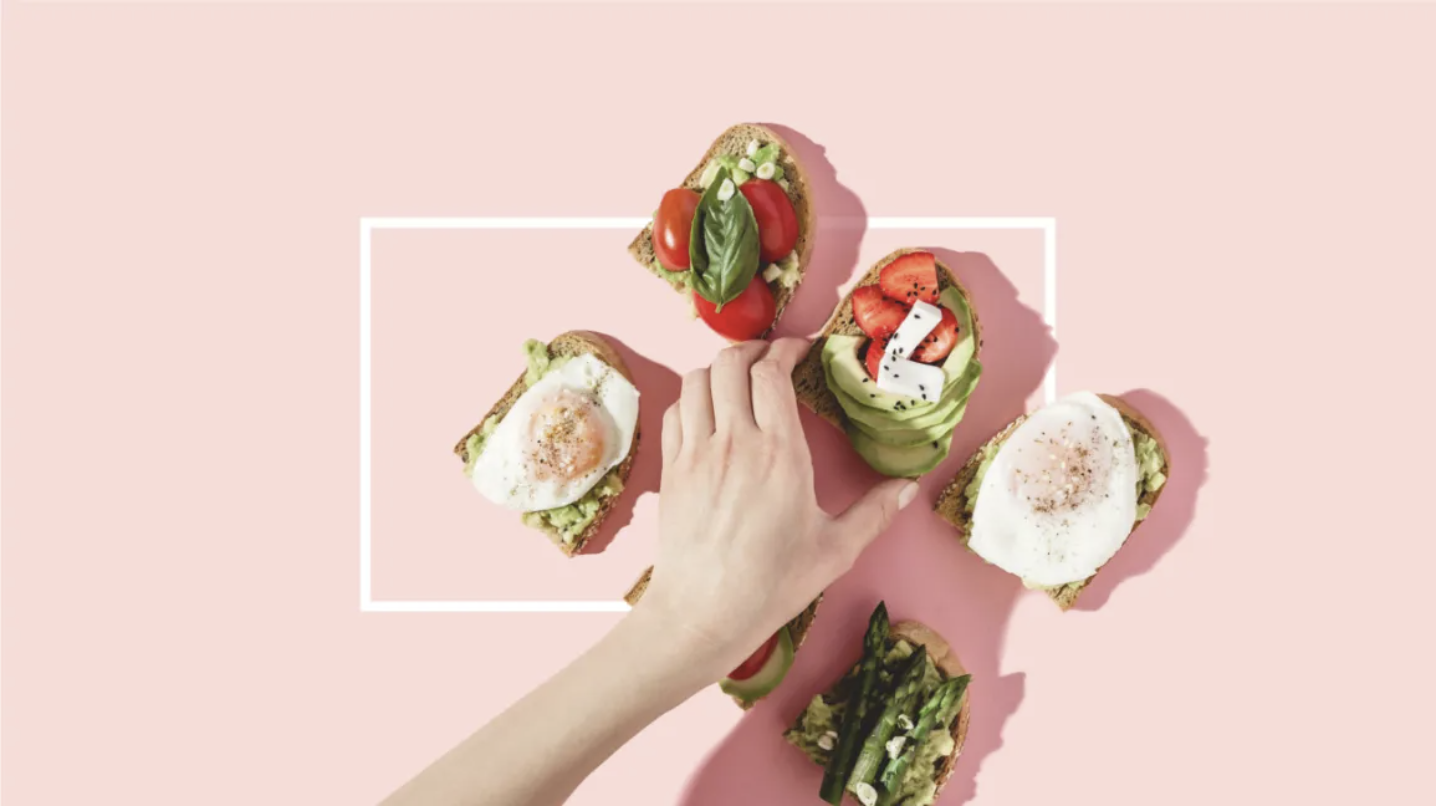Your Diet and Beauty: How What You Eat Affects Your Glow

We all know the saying “You are what you eat,” and when it comes to your skin and hair, it’s spot on. The food you eat has a big impact on how your skin looks and how your hair feels. Understanding this link between your diet and your appearance can help you make better choices for a glowing, youthful look. This guide explores how food affects your beauty, backed by insights from experts and scientific studies.
The Gut-Skin Connection
Your gut health is closely tied to your skin health. Naturopathic doctor Dr. Nigma Talib points out that your skin reflects what’s happening in your gut. When your gut is healthy, your skin tends to be healthier and more radiant. An imbalance in your gut microbiome can lead to inflammation, which often shows up as skin issues like acne, eczema, or rosacea.
Dermatologist Dr. Whitney Bowe agrees, highlighting how crucial a healthy gut microbiome is for clear, glowing skin. Eating foods that support gut health can directly improve your skin’s appearance.
I struggled with stubborn acne for years and tried all sorts of creams. It wasn’t until I focused on improving my gut health by eating more probiotic-rich foods like yogurt and kimchi that I saw significant improvements in my skin. This taught me the power of nourishing my body from the inside out.
Nutrients for Radiant Skin
Antioxidants: The Skin Protectors
Antioxidants are your skin’s best friends. They shield your skin from damage caused by free radicals, which can harm skin cells. Foods rich in antioxidants, such as berries, nuts, and dark leafy greens, are essential for maintaining healthy, glowing skin.
Dr. Mehmet Oz emphasizes the power of food as a daily healer or harmer. Adding antioxidant-rich foods to your diet helps protect your skin from the inside out.
Omega-3 Fatty Acids: The Hydrators
Omega-3 fatty acids are crucial for keeping your skin’s lipid barrier intact, which keeps it hydrated and supple. These healthy fats also help reduce inflammation, which can prevent conditions like acne and eczema. Include fatty fish like salmon, flaxseeds, and walnuts in your diet for these benefits.
Vitamins A, C, and E: The Anti-Agers
Vitamins A, C, and E are essential for healthy skin and fighting signs of aging. Vitamin A aids in cell turnover, vitamin C boosts collagen production, and vitamin E protects against UV damage. Carrots, sweet potatoes, citrus fruits, and almonds are great sources of these vitamins.
Zinc: The Healer
Zinc plays a crucial role in repairing and regenerating skin. It helps reduce inflammation and can improve acne. Foods rich in zinc include pumpkin seeds, chickpeas, and lentils.
A thorough review in the Journal of the American Academy of Dermatology underscores how different nutrients impact skin health, showing just how much diet can affect skin conditions like acne, aging, and wound healing.
Foods for Lustrous Hair
Protein: The Building Block
Since hair is mostly protein, it’s essential to get enough of it for growth and strength. Eggs, lean meats, beans, and legumes are excellent protein sources.
Biotin: The Growth Booster
Biotin, also known as vitamin B7, supports hair growth and strength. Foods rich in biotin include eggs, almonds, and sweet potatoes.
Iron: The Energizer
Iron deficiency can lead to hair loss, so it’s crucial to include iron-rich foods in your diet. Spinach, lentils, and red meat are good sources of iron.
Vitamin A: The Scalp Soother
Vitamin A helps produce sebum, which keeps your scalp moisturized and healthy. Carrots, sweet potatoes, and kale are packed with this essential vitamin.
Kimberly Snyder, a celebrity nutritionist, stresses that true beauty starts from within. What you eat plays a vital role in the health of your skin and hair.
After noticing my hair thinning, I focused more on getting iron into my diet by eating more spinach and lentils. Over a few months, my hair became thicker and stronger.
Hydration and Beauty
Stay Hydrated
Hydration is key for both skin and hair health. Water helps flush out toxins, keeps your skin plump, and supports overall bodily functions. Aim to drink at least eight glasses of water a day.
Herbal Teas and Hydrating Foods
In addition to water, herbal teas and hydrating foods like cucumbers, watermelon, and celery can help you stay hydrated.
Dr. Perricone, a dermatologist, points out that the foods you eat can have a profound impact on how you look and feel. A diet rich in antioxidants and healthy fats can protect your skin and give you a youthful glow.
Switching from coffee to herbal tea throughout the day improved my hydration levels and made my skin look more radiant and less tired.
Foods to Avoid for Better Skin and Hair
Sugar: The Skin Saboteur
High sugar intake can lead to inflammation and breakouts, speeding up the aging process by damaging collagen and elastin fibers.
Processed Foods: The Inflammatory Culprits
Processed foods often contain unhealthy fats, additives, and preservatives that can trigger inflammation and worsen skin conditions. Opt for whole, unprocessed foods whenever possible.
Dairy: The Acne Aggravator
Some studies suggest that dairy products can worsen acne in some people. If you notice breakouts after consuming dairy, consider cutting back or switching to plant-based alternatives.
Research in Dermato-Endocrinology ties high-glycemic load diets and dairy consumption to increased acne risk, showing how your food choices can affect your skin.
After cutting out most processed foods and reducing my sugar intake, my skin cleared up dramatically. It was tough at first, but the results were worth it.
Expert Tips for Radiant Skin and Hair
Balance Your Diet
A balanced diet full of fruits, veggies, lean proteins, and healthy fats is essential for glowing skin and strong hair. Dr. Whitney Bowe emphasizes the importance of a healthy gut for clear, radiant skin.
Practice Mindful Eating
Pay attention to what you eat and how it makes you feel. Mindful eating can help you make better food choices and enjoy your meals more.
Include Antioxidant-Rich Foods
Antioxidants protect your skin and hair from free radical damage. Berries, dark chocolate, and green tea are great sources of antioxidants.
I started adding more antioxidant-rich foods to my diet after learning about their benefits. Adding berries to my morning oatmeal and sipping green tea instead of coffee made a noticeable difference in my skin’s glow.
Scientific Support
Diet and Dermatology
A review in the Journal of the American Academy of Dermatology highlights the importance of nutrients like vitamins A, C, and E, and omega-3 fatty acids for skin health.
The Role of Diet in Acne
Research in Dermato-Endocrinology links diets high in glycemic load and dairy consumption to increased acne risk, showing how food choices impact skin clarity.
Skin Health and Diet in Adults
Studies show that diets high in vegetables and fish are associated with fewer wrinkles, suggesting that eating well can keep skin looking youthful.
Dietary Interventions for Acne Vulgaris
A meta-analysis in JAMA Dermatology shows that changing your diet, like reducing sugar and dairy, can improve acne symptoms.
Association of Diet with Skin Wrinkles in Japanese Women
Research in the Journal of Nutritional Science and Vitaminology finds that higher intake of green and yellow vegetables is linked to fewer facial wrinkles in middle-aged women, highlighting diet’s role in skin aging.
Conclusion
What you eat affects how your skin and hair look and feel. By eating nutrient-rich foods, staying hydrated, and avoiding foods that can trigger inflammation and breakouts, you can achieve glowing skin and healthy hair from the inside out. Remember, true beauty starts with good nutrition, and the right foods can make a world of difference.



